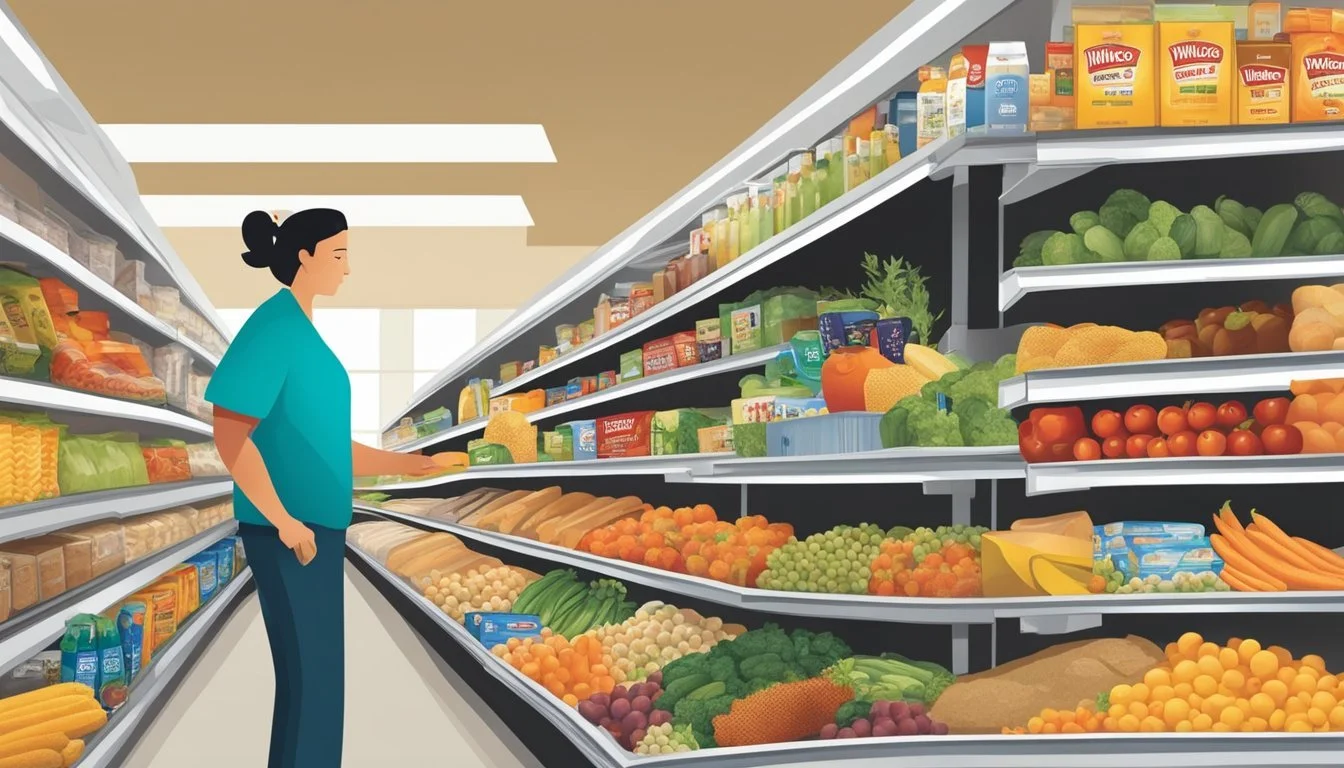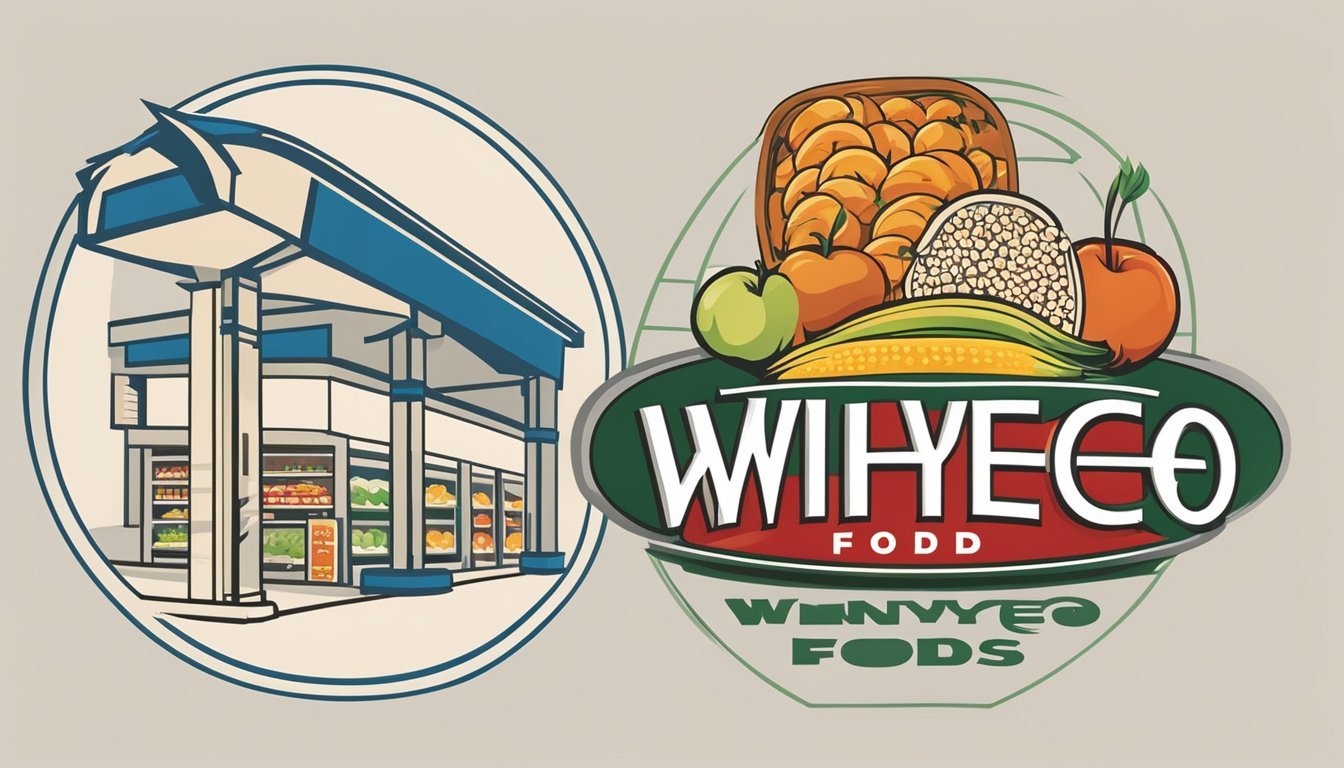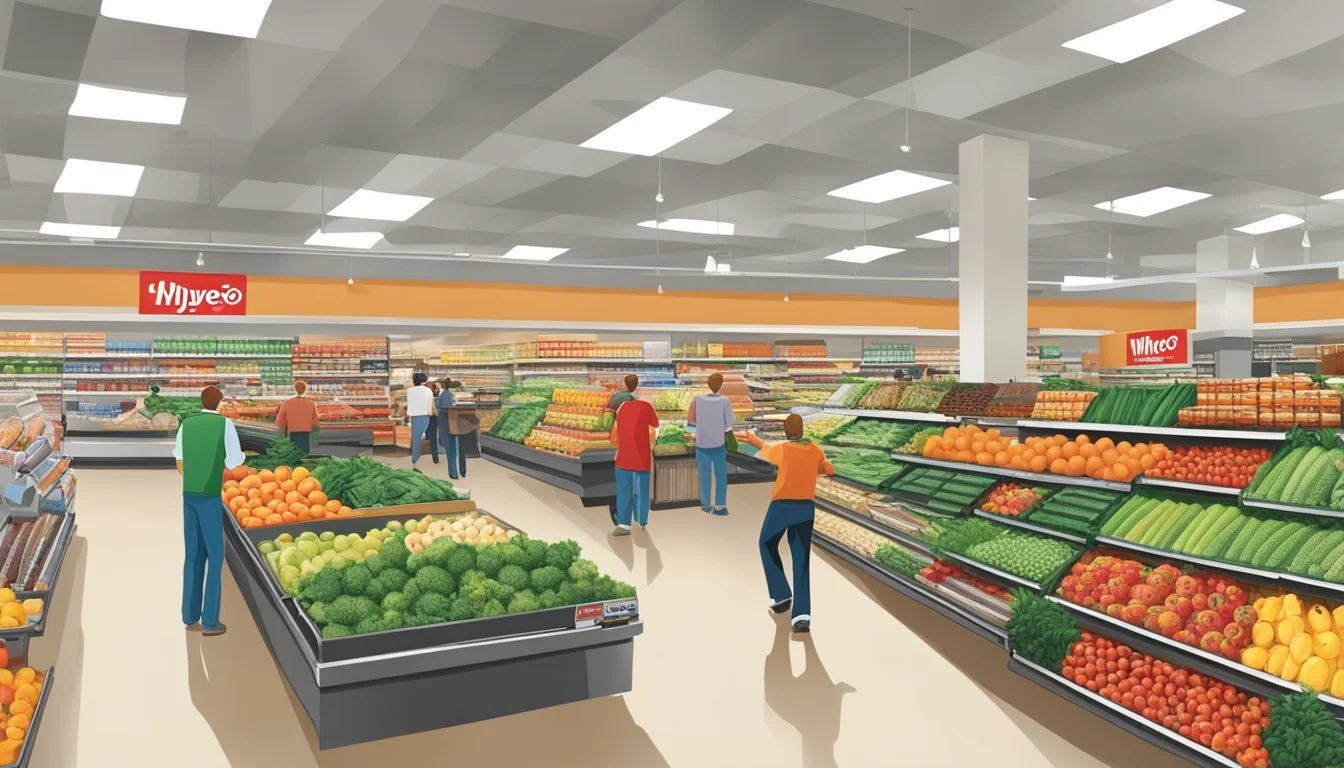Hy-Vee vs WinCo Foods
A Comprehensive Comparison of Price and Quality
Grocery shopping can be a significant expense for many households, making the choice of supermarket crucial for budget-conscious consumers. Two popular options in certain regions are Hy-Vee and WinCo Foods, each offering distinct advantages to shoppers.
WinCo Foods generally provides lower prices compared to Hy-Vee, with potential savings of over $2,800 per year for families. This price difference stems from WinCo's business model as a no-frills, employee-owned company that focuses on keeping costs down.
While Hy-Vee may have higher prices overall, it often provides a wider selection of products and services. Many Hy-Vee stores feature in-store restaurants, pharmacies, and specialty departments, catering to shoppers who value convenience and variety alongside their grocery needs.
Company Overviews
Hy-Vee and WinCo Foods are prominent grocery chains serving different regions of the United States. Each company has a unique history and approach to meeting customers' needs.
Hy-Vee: A Midwestern Staple
Hy-Vee is a supermarket chain deeply rooted in the Midwest. Founded in 1930, it has grown to over 280 stores across eight states. Hy-Vee is known for its employee ownership model, which promotes a strong customer service culture.
The company offers a wide range of departments, including pharmacies, floral shops, and in-store dining options. Hy-Vee has embraced technology, providing online shopping and delivery services to cater to modern families' needs.
Hy-Vee's commitment to community involvement is evident through its sponsorship of local events and charitable initiatives. The chain focuses on providing fresh, high-quality products and has developed several in-house brands.
WinCo Foods: The Western Giant
WinCo Foods is a privately held, employee-owned supermarket chain primarily serving the Western United States. Founded in 1967, WinCo has expanded to over 130 stores across 10 states.
The company is renowned for its no-frills approach and low prices. WinCo operates on a warehouse-style model, allowing customers to buy in bulk and save money. This strategy has made it popular among budget-conscious families.
WinCo Foods maintains its competitive edge by cutting costs through direct purchasing from manufacturers and minimal advertising. The stores often feature expansive bulk foods sections and focus on providing essential grocery items at discounted prices.
Price Comparison
Hy-Vee and WinCo Foods offer different pricing strategies to attract budget-conscious shoppers. Both chains aim to provide value, but their approaches vary in terms of everyday pricing and special savings programs.
Everyday Price Analysis
WinCo Foods consistently offers lower everyday prices compared to Hy-Vee. On average, WinCo's prices are 15-20% below typical supermarket rates. Their bulk bins and store brand items contribute significantly to these savings.
Hy-Vee's prices tend to be closer to the industry average. However, they often have competitive prices on fresh produce and meat. Hy-Vee's store brand products are generally priced lower than national brands but may not match WinCo's rock-bottom prices.
When compared to other major retailers, WinCo's prices are often on par with or lower than Walmart and Aldi. Hy-Vee typically falls between Walmart and Target in terms of pricing.
Discount and Savings Programs
Hy-Vee offers a robust rewards program called Fuel Saver + Perks. Customers earn points on purchases, which can be redeemed for gas discounts or grocery savings. They also provide digital coupons and weekly specials.
WinCo Foods takes a different approach. They don't offer a loyalty program or accept manufacturer coupons. Instead, they focus on maintaining consistently low prices across the board. WinCo achieves this by cutting operational costs, such as not accepting credit cards.
Both stores run periodic sales, but Hy-Vee tends to have more frequent promotions. WinCo occasionally offers limited-time discounts on select items, particularly in their bulk section.
Quality of Offerings
Hy-Vee and WinCo Foods offer different approaches to product quality, with each store catering to specific customer preferences. Their standards for produce, meats, store brands, and prepared foods impact overall shopping experiences.
Produce and Meat Standards
Hy-Vee prioritizes fresh produce, often sourcing from local farms when possible. Their produce departments feature a wide variety of organic options. Hy-Vee's meat counters are known for high-quality cuts and trained butchers on staff.
WinCo Foods focuses on value, offering competitive prices on produce. While their selection may be more limited, they maintain freshness through frequent restocking. WinCo's meat department provides budget-friendly options but may have fewer premium cuts compared to Hy-Vee.
Both stores implement quality control measures, but Hy-Vee generally has a reputation for higher overall produce and meat quality.
Store Brand Quality
Hy-Vee's store brand products are well-regarded for their quality and variety. They offer several tiers, including organic and premium options, often comparable to national brands in taste and ingredients.
WinCo Foods' store brands focus on affordability. While perhaps not as extensive as Hy-Vee's range, WinCo's private label items provide good value for budget-conscious shoppers. Many customers find WinCo's store brand quality satisfactory for everyday staples.
Both chains ensure their store brands meet safety standards, but Hy-Vee tends to receive higher marks for taste and ingredient quality in consumer reviews.
Prepared Foods and Deli
Hy-Vee excels in prepared foods and deli offerings. Many locations feature in-store restaurants, sushi bars, and extensive hot food bars. Their delis offer a wide range of freshly made salads, sandwiches, and rotisserie items.
WinCo Foods has a more limited selection of prepared foods. Their deli departments typically focus on basic offerings like sliced meats and cheeses, with some locations providing rotisserie chickens and simple pre-made sandwiches.
Hy-Vee's prepared foods are often praised for quality and variety, appealing to customers seeking convenient meal solutions. WinCo's offerings are more basic but align with their low-price strategy.
Shop Experience
Hy-Vee and WinCo Foods offer distinct shopping environments that cater to different consumer preferences. Their approaches to store layout, checkout processes, and customer service significantly impact the overall shopping experience.
Store Layout and Design
Hy-Vee stores typically feature a clean, well-lit atmosphere with wide aisles and clearly marked sections. The layout often includes specialty departments like in-store pharmacies, floral shops, and wine and spirits sections. Many Hy-Vee locations incorporate modern design elements and updated fixtures.
WinCo Foods, in contrast, embraces a no-frills warehouse-style layout. The stores are spacious, with high ceilings and industrial lighting. WinCo's design prioritizes efficiency and bulk shopping, featuring large bins of dry goods and a expansive produce section.
Both chains organize products logically, but Hy-Vee tends to create a more visually appealing shopping environment.
Checkout Efficiency
Hy-Vee offers a mix of traditional checkout lanes and self-checkout options. During peak hours, they often open additional lanes to manage customer flow. Some Hy-Vee stores have implemented scan-and-go technology, allowing shoppers to use their smartphones for a quicker checkout process.
WinCo Foods is known for its efficient checkout system. The stores typically have numerous lanes open, even during off-peak hours. WinCo does not offer self-checkout options, instead focusing on swift service from cashiers trained to handle high-volume transactions.
Customers at WinCo often experience shorter wait times due to the streamlined process and ample staffing at registers.
Customer Service Excellence
Hy-Vee prides itself on customer service, training employees to be knowledgeable and attentive. Staff members are often available throughout the store to assist shoppers with product locations or inquiries. The company emphasizes a personalized shopping experience, with employees encouraged to build relationships with regular customers.
WinCo Foods takes a more hands-off approach to customer service. The focus is on maintaining low prices, which results in fewer staff members on the sales floor. However, when assistance is needed, WinCo employees are generally helpful and efficient.
Hy-Vee's service model caters to shoppers who value interaction and guidance, while WinCo appeals to self-sufficient customers who prioritize value over personalized attention.
Product Range and Availability
Hy-Vee and WinCo Foods offer different product ranges to cater to various customer needs. Both stores strive to provide a wide selection, but their focus areas differ slightly.
Product Selection Variety
Hy-Vee boasts a comprehensive product range, featuring both national brands and their own private label items. Their stores typically stock over 100,000 products, ensuring customers can find most items on their shopping lists.
WinCo Foods, while having a smaller overall selection, still offers a substantial variety. They focus on providing essential items at competitive prices. WinCo's bulk foods section is particularly noteworthy, allowing customers to purchase exact quantities of dry goods, spices, and snacks.
Both chains carry fresh produce, meats, dairy, and pantry staples. Hy-Vee often includes specialized departments like florists and pharmacies, while WinCo emphasizes a no-frills shopping experience.
Organic and Specialty Items
Hy-Vee has made significant strides in expanding its organic and specialty product offerings. They feature dedicated sections for organic produce, gluten-free items, and international foods.
WinCo Foods also stocks organic options, though their selection may be more limited compared to Hy-Vee. They focus on providing popular organic staples at competitive prices.
Hy-Vee tends to carry a broader range of specialty and gourmet items, catering to diverse dietary preferences and culinary interests. WinCo, while offering some specialty products, primarily concentrates on mainstream grocery items to keep costs low for customers.
Brand and Company Policies
Hy-Vee and WinCo Foods have distinct approaches to sustainability, ethics, and customer satisfaction. Their policies reflect their values and impact shoppers' experiences.
Sustainability and Ethical Practices
Hy-Vee emphasizes environmental responsibility through its "One Step" program. This initiative supports reforestation, clean water projects, and community gardens. The company also focuses on reducing food waste and promoting sustainable seafood sourcing.
WinCo Foods takes a different approach, prioritizing cost-saving measures that often align with sustainability. The company encourages customers to bring reusable bags and offers bulk food sections to reduce packaging waste. WinCo also implements energy-efficient practices in its stores to minimize its environmental footprint.
Both retailers have made commitments to ethical sourcing, but Hy-Vee's policies are more publicly detailed. Hy-Vee has a supplier code of conduct that addresses labor practices and animal welfare.
Return Policies and Guarantees
Hy-Vee offers a "100% satisfaction guarantee" on all products. Customers can return any item, with or without a receipt, for a full refund or exchange. This policy extends to Hy-Vee's store brands and fresh produce.
WinCo Foods has a more standard return policy. Customers can return most items within 30 days with a receipt for a full refund. Without a receipt, WinCo may offer store credit at the current selling price.
For perishable items, both stores generally accept returns of unsatisfactory products. Hy-Vee's policy is more flexible, while WinCo may require manager approval for certain perishable returns.
Regional Presence and Expansion
Hy-Vee and WinCo Foods have distinct regional footprints and expansion strategies. Their market presence impacts availability and accessibility for customers across different areas of the United States.
Market Presence and Accessibility
Hy-Vee operates primarily in the Midwest, with a strong presence in Iowa, Nebraska, and South Dakota. The company has 285 stores across eight states. Hy-Vee dominates in Iowa, capturing 65% of grocery store visits.
WinCo Foods focuses on the Western United States. It has stores in Arizona, California, Idaho, Nevada, Oklahoma, Oregon, Texas, Utah, and Washington. WinCo's employee-owned model has helped it expand steadily.
Hy-Vee stores are typically found in both urban and rural areas, while WinCo tends to locate in more densely populated regions. This affects accessibility for customers in different community types.
Future Expansion Plans
Hy-Vee has been actively growing its footprint. The company opened seven new stores in 2022 and five in 2023. Hy-Vee is exploring expansion beyond its traditional Midwest base, aiming to become a major player in new markets.
WinCo Foods maintains a more measured approach to expansion. The company focuses on strategic growth in its existing regions and neighboring states. This careful expansion helps WinCo maintain its low-price model and employee-ownership structure.
Both retailers face competition from national chains like Walmart. Hy-Vee's expansion plans are more aggressive, while WinCo prioritizes sustainable growth within its established markets.
Customer Loyalty and Engagement
Hy-Vee and WinCo Foods employ distinct strategies to foster customer loyalty and community connections. These approaches impact how shoppers perceive and interact with each brand.
Loyalty Programs and Benefits
Hy-Vee offers a robust loyalty program called Hy-Vee Plus. Members receive exclusive discounts, free delivery on online orders, and access to premium services. The program costs $99 annually but can provide significant savings for frequent shoppers.
WinCo Foods takes a different approach. Instead of a formal loyalty program, they focus on consistently low prices for all customers. This strategy aims to build loyalty through everyday value rather than personalized rewards.
Hy-Vee's digital app allows customers to clip coupons, track rewards, and manage prescriptions. WinCo's simpler model means fewer digital perks but potentially lower operational costs passed on to customers.
Community Involvement and Outreach
Hy-Vee actively engages in community initiatives. They sponsor local events, support youth sports teams, and partner with food banks to address hunger in their service areas. Their "One Step" program donates a portion of sales from select products to various causes.
WinCo Foods maintains a lower profile in community outreach. However, they contribute through employee ownership, which can foster a sense of local investment. Some stores participate in food donation programs and support nearby schools.
Hy-Vee's more visible community presence may resonate with shoppers who value corporate social responsibility. WinCo's employee-owned model can appeal to those who prioritize supporting local workers and economies.
Comparative Advantage
Hy-Vee and WinCo Foods each offer distinct strengths that appeal to different shopper preferences. Their unique approaches to pricing, product selection, and customer experience create competitive edges in the grocery market.
Unique Selling Propositions
Hy-Vee emphasizes customer service and a wide array of prepared foods. Its stores feature in-house restaurants, pharmacies, and specialty departments. The company focuses on a more upscale shopping experience with higher-end products and services.
WinCo Foods positions itself as a no-frills, low-price leader. It operates as an employee-owned company, allowing for reduced overhead costs. WinCo's bulk foods section is a major draw, offering customers significant savings on pantry staples.
Overall Customer Value
WinCo Foods provides substantial savings, with prices often 15-20% lower than traditional supermarkets. The company's cost-cutting measures, such as having customers bag their own groceries, contribute to these lower prices.
Hy-Vee offers a broader range of services and amenities. While prices may be higher, customers benefit from:
Full-service meat and seafood counters
Extensive deli and bakery options
Health and wellness programs
Fuel savings programs
The choice between the two depends on individual priorities: budget-conscious shoppers may prefer WinCo, while those seeking convenience and variety might choose Hy-Vee.







